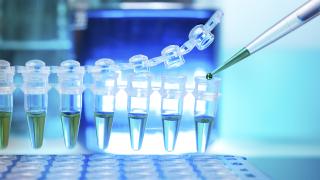An innovative, first-of-its kind vaccine that uses a person’s own immune cells and vitamin D3 to treat type 1 diabetes is both safe and feasible, according to research published today in The Lancet Diabetes and Endocrinology. Bart O. Roep, Ph.D., led the team that conducted the research.
“Our research brings us one step closer to finding a vaccine against type 1 diabetes, an ambitious quest at City of Hope, and the hope of many patients with this disease,” Roep said.
The vaccine was tested in a first-in-human phase 1 clinical trial conducted at Leiden University Medical Center in the Netherlands. It represents a novel approach to an inflammatory autoimmune disease, as the researchers aim to engage the immune system rather than suppress it, which is currently the common way to treat autoimmune diseases such as type 1 diabetes, rheumatoid arthritis, lupus and multiple sclerosis, as well as inflammatory diseases like psoriasis and colitis.
“We want to negotiate with the immune system rather than bombard it into submission, because the latter may affect your chances of fighting off cancer and infections, including coronavirus,” Roep explained. “In addition, this is the first time that physicians tried to intervene in type 1 diabetes years after diagnosis. Until now, virtually all strategies to stop type 1 diabetes are tested at diagnosis, or perhaps even before. Given the exquisite safety that we now demonstrate, this strategy should be ideal for children, too, to stop or even prevent the disease.”
For the trial, Roep and his team took a patient’s immune cells and manipulated them in a laboratory to become anti-inflammatory. They then loaded the cells with a fragment of insulin-producing beta cells from the pancreatic islets and added vitamin D3, which Roep said helped train the immune system to modulate inflammation. They then injected the modified immune cells back into the participants.
An 'Inverse Vaccine'
The strategy acts as an “inverse vaccine” in that it will stop certain specific immune responses rather than activate them, as is done with, for example, flu vaccines, he added.
“That the vaccine proved safe and feasible is important because we basically injected beta cell protein, the target of the autoimmune response that causes type 1 diabetes, in an attempt to make patients’ immune systems ignore it,” Roep said. “The goal was to stop the immune attack on the insulin-producing cells and stop the disease progression, but theoretically, it could have also aggravated the immune attack and made things worse.
“The trial participants are true heroes, joining the study for the sake of others without any guaranteed personal gain,” he added.
Nine participants in the study were monitored for six months after receiving the injections. No signs of systemic immune suppression or major adverse reactions were seen. Furthermore, beta cell function and overall diabetic control remained stable, and all patients maintained healthy blood sugar levels after treatment.
“In the future, this strategy could be tweaked to treat other autoimmune or inflammatory diseases, as long as you know the driving trigger,” Roep said. “We plan to continue to use it in type 1 diabetes patients to preserve beta cells, and thus insulin production by the patients themselves, which likely also will have the positive effect of preventing diabetic complications like blindness and neuropathy.”
Roep and his collaborators plan to start a phase 1 clinical trial at City of Hope to test the vaccine for the first time in the United States as part of The Wanek Family Project for Type 1 Diabetes. The trial is designed for type 1 diabetes patients who were diagnosed in the last one to five years, when there are many more beta cells to be preserved and protected.
As they did in the Netherlands, researchers also plan to use a new type of conduit to deliver a treatment called micro-needles, which are grouped together and applied like a transdermal patch, injecting the immune cells under the skin of patients rather than straight into the blood.
“This way, the modulated immune cells only migrate to the relevant tissue, which is a great safety asset,” Roep said.
Vitamin D3 and Coronavirus
The trial’s outcome could also demonstrate the powerful effect vitamin D3 has on a person’s immune system, and could even be a key to fighting the COVID-19 pandemic, Roep said. Data is starting to show that the groups at highest risk to end up in intensive care with coronavirus infection are African Americans, Latinos and people who are obese, who all tend to have low vitamin D3 levels. (Melanin interferes with activation of vitamin D3 received via sunlight, and vitamin D3 is fat soluble, meaning it gets stored in fatty tissue.)
Vitamin D3 has been shown to protect against respiratory illness and other diseases, including type 1 diabetes and cancer, Roep noted. He explained that type 1 diabetes patients — like those with COVID-19 complications — have an immune system that is over-responding, and vitamin D3 may help keep the immune system in check.
“Vitamin D3 could just be the master switch to balance things out in T1D patients and help [people] resist COVID-19,” Roep said.

